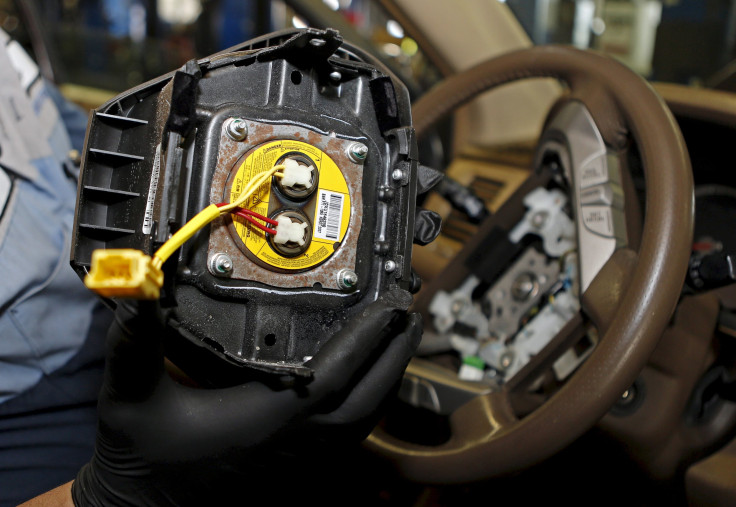Takata Corp.’s Explosive Air Bag Recall List Is Poised To Get Much Longer: Report

Auto-safety regulators are forcing the Japanese company behind an ongoing recall of 24 million vehicles in the U.S. to roughly double the number of affected cars, trucks and SUVs from at least 14 automakers.
Citing three anonymous sources close to the issue, Reuters said the recall could happen as early as Wednesday and would add several more years to the expected amount of time it will take to fix the tens of millions of vehicles on U.S. roads.
Previously, about 24 million vehicles in the U.S. with 28.8 million inflators needed to be replaced. Now, as many as 40 million additional inflators could be added this week, including 35 million passenger-side air bag units and some vehicles that have already had their units replaced.
The number of affected autos is unknown since in some cases only the driver’s side air bag is affected, while in others, occupants of both front passenger seats are at risk of death or injuries.
According to the report, the recall includes air bag inflators that lack drying agents inside the capsules containing ammonium nitrate, the volatile chemical used to rapidly inflate air bags. The chemical has a delicate relationship with moisture. Over time, the deployment force of the inflators can increase as humidity penetrates and alters the properties of the chemical compound. Last year, Takata said it would move away from using ammonium nitrate in its products.
Honda Motor has been most affected by the recall because if its longtime relationship with Takata, a decades-old Japanese supplier of auto-safety component and baby seats that at one point was supplying one in five of the world’s automotive air bags. The defect, linked to at least 11 deaths and 160 injuries worldwide, causes air bag inflators to deploy with such excessive force they can send shrapnel ripping through the air bag fabric and into the heads and torsos of front occupants.
Deaths and injuries could be much higher, however. Some of the affected cars date back to 2002, and the size and geographic scope of the problem could mean that past accidents and deaths went uncounted if crash investigators failed to notice injuries linked to the defect.
Takata booked $567 million in charges related to the defect as of March 31. It added another $189 million earlier this week, Bloomberg reported.
© Copyright IBTimes 2024. All rights reserved.





















